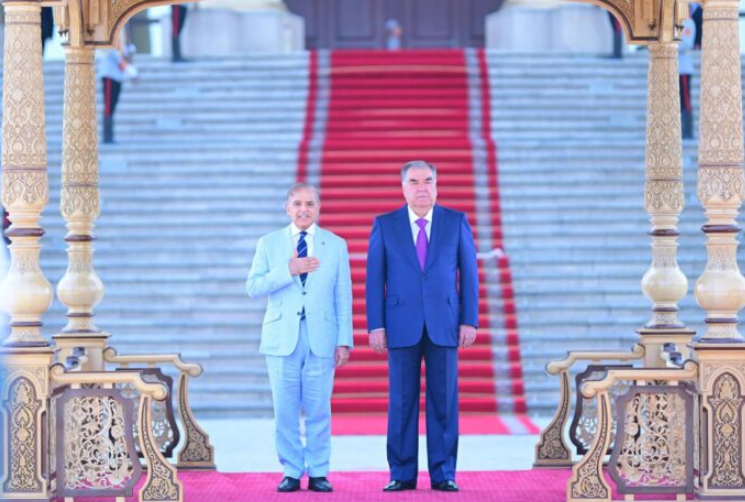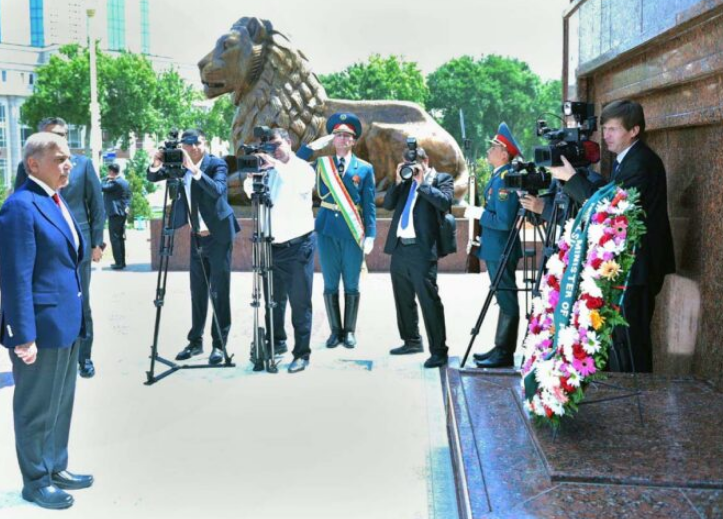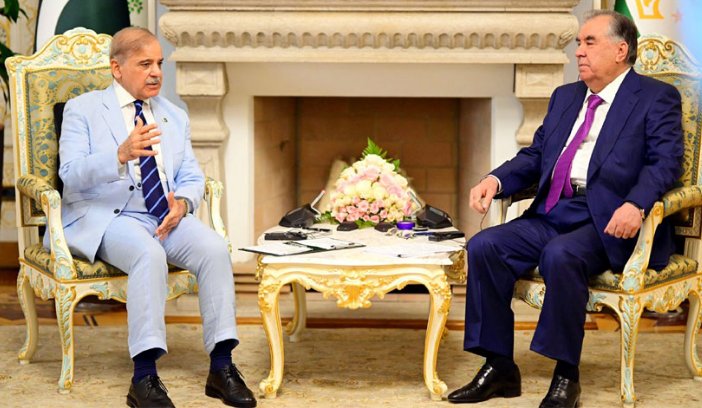Dushanbe (Web Desk/Agencies): Prime Minister Shehbaz Sharif on Tuesday met with President of Tajikistan Emomali Rahmon and highlighted that there existed immense potential for foreign investment in Pakistan’s energy, mining, industry, agriculture and other sectors.
As the prime minister arrived at the Qasr-e-Millat, the Tajik president warmly welcomed him which followed the guard of honour by the contingents of Tajik armed forces.

President Emomali Rahmon emphasised cordial brotherly relations between Pakistan and Tajikistan.
Both the leaders discussed the ways to strengthen cooperation in different fields between the two countries.
Prime Minister Shehbaz invited Tajikistan’s investment in different sectors of Pakistan, improving regional connectivity and linkages between the people of two countries.
Earlier today, PM Shehbaz reached Dushanbe on a two-day official visit to Tajikistan.
On his arrival at Dushanbe airport, the premier was welcomed by Tajik Prime Minister Kokhir Rasulzoda, Minister for Energy and Water Resources Daler Juma, Tajik Deputy Foreign Minister Farrukh Sharifzada, Dushanbe Mayor Jamshid Tabarzada and Tajik Ambassador to Pakistan Sharifzoda Yusuf and Pakistani Ambassador to Tajikistan Muhammad Saeed Sarwar and senior government and diplomatic officials.
PM Shehbaz paid visit to memorial of Tajik national hero Ismail Samani. He laid a floral wreath at Samani's memorial.

The prime minister is accompanied by a delegation comprising Deputy Prime Minister and Foreign Minister Muhammad Ishaq Dar, Defence Minister Khawaja Muhammad Asif, Information and Broadcasting Minister Attaullah Tarar and Special Assistant to PM Tariq Fatemi.
On Monday, the Foreign Office (FO), stated that the visit of PM Shehbaz is a part of regular high-level exchanges between Pakistan and Tajikistan.
The two sides will engage in wide-ranging discussions on areas of mutual interest to further deepen bilateral cooperation especially in the areas of regional connectivity, trade, people-to-people contacts and energy as well as cooperation on multilateral issues.
The two sides will also sign agreements and Memorandum of Understandings (MoUs) in diverse areas of cooperation.


